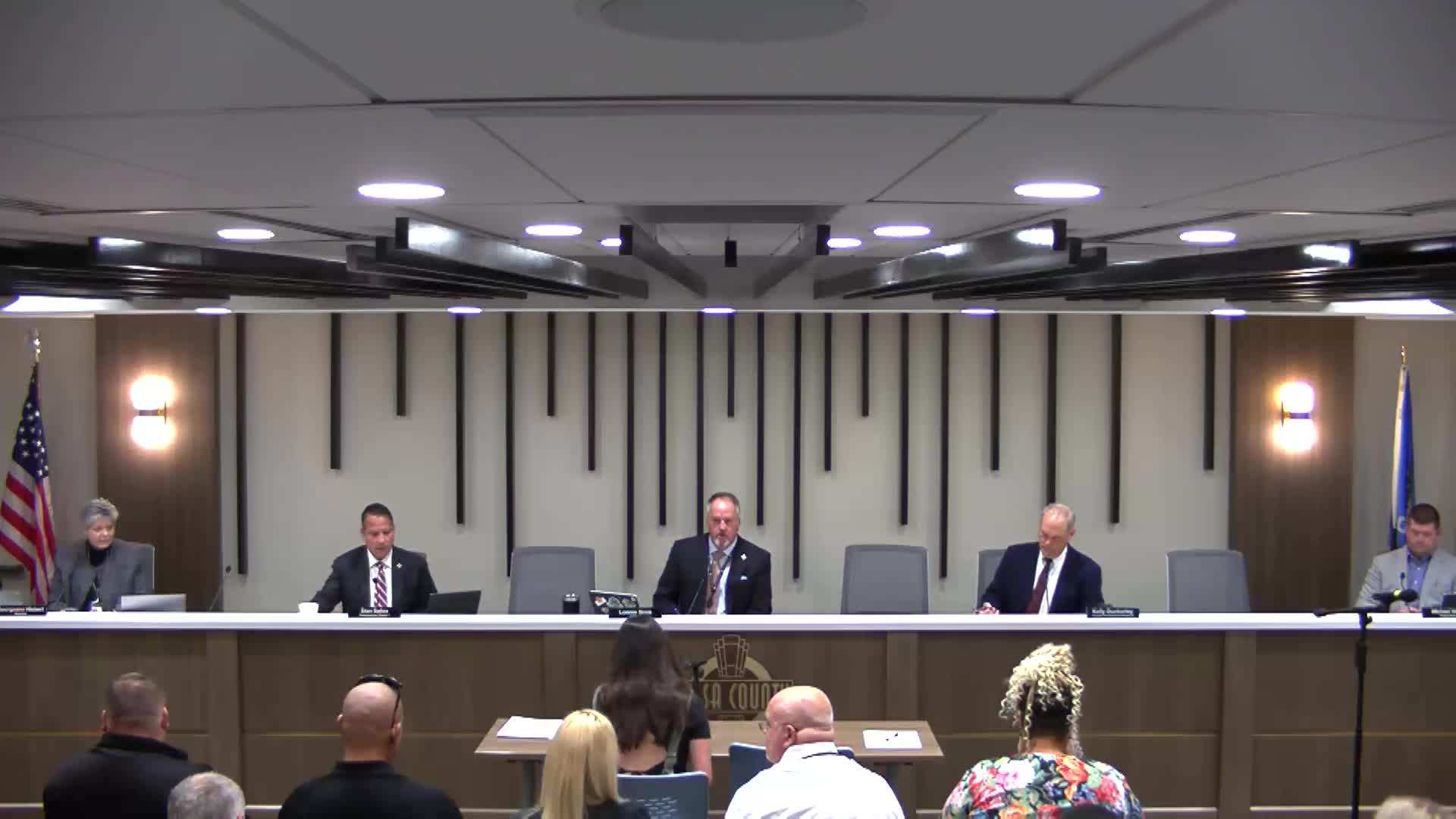Tulsa Commission Approves Project Clydesdale Amid Labor and Environmental Concerns
September 29, 2025 | Tulsa County, Oklahoma
This article was created by AI summarizing key points discussed. AI makes mistakes, so for full details and context, please refer to the video of the full meeting. Please report any errors so we can fix them. Report an error »

The Tulsa Board of County Commissioners convened on September 29, 2025, to discuss significant labor concerns related to a tax incentive agreement for a new development project. The meeting highlighted the need for local hiring commitments from the developer, as local taxpayers will be funding property taxes for the next 25 years.
The discussion began with a representative from the local labor community expressing frustration over the lack of a formal commitment from the developer to hire local workers. The speaker emphasized the importance of including a good faith effort to employ a percentage of local laborers in the tax incentive agreement, suggesting a target of 30% for construction hours and 20% for local apprentices. This request was framed as a fair expectation given that local residents would be financially supporting the development through property taxes.
The developer's representative, Taylor Brown, responded by acknowledging ongoing discussions with local labor leaders and stated that they had made efforts to address these concerns in a Memorandum of Understanding (MOU). However, he expressed reluctance to commit to specific hiring percentages due to potential risks in meeting market demands for labor. Brown assured the commissioners that the developer would strive to hire locally and engage with apprenticeship programs.
Further contributions from other community representatives reinforced the call for local hiring, with one construction industry leader warning that failing to commit to local labor could suppress wages and harm the local economy. The sentiment was echoed by a representative from the City of Owasso, who praised the developer's good faith efforts to engage with the community.
The meeting concluded without a clear resolution on the hiring commitments, leaving the commissioners to consider the implications of approving a tax incentive agreement that lacked full consent from all taxing entities involved. The discussions underscored the ongoing tension between economic development and the need for accountability to local communities, as stakeholders await further developments on the project.
The discussion began with a representative from the local labor community expressing frustration over the lack of a formal commitment from the developer to hire local workers. The speaker emphasized the importance of including a good faith effort to employ a percentage of local laborers in the tax incentive agreement, suggesting a target of 30% for construction hours and 20% for local apprentices. This request was framed as a fair expectation given that local residents would be financially supporting the development through property taxes.
The developer's representative, Taylor Brown, responded by acknowledging ongoing discussions with local labor leaders and stated that they had made efforts to address these concerns in a Memorandum of Understanding (MOU). However, he expressed reluctance to commit to specific hiring percentages due to potential risks in meeting market demands for labor. Brown assured the commissioners that the developer would strive to hire locally and engage with apprenticeship programs.
Further contributions from other community representatives reinforced the call for local hiring, with one construction industry leader warning that failing to commit to local labor could suppress wages and harm the local economy. The sentiment was echoed by a representative from the City of Owasso, who praised the developer's good faith efforts to engage with the community.
The meeting concluded without a clear resolution on the hiring commitments, leaving the commissioners to consider the implications of approving a tax incentive agreement that lacked full consent from all taxing entities involved. The discussions underscored the ongoing tension between economic development and the need for accountability to local communities, as stakeholders await further developments on the project.
View full meeting
This article is based on a recent meeting—watch the full video and explore the complete transcript for deeper insights into the discussion.
View full meeting
